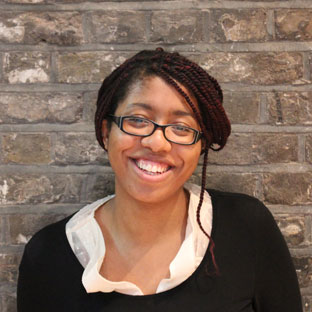Today the RSA launches Beyond the School Gates a report on supplementary education in Britain. The report, which marks the end of the second RSA Investigate-Ed, explores how supplementary schools can continue to play a role in improving the life chances of black and minority ethnic (BME) pupils.
Supplementary schools are volunteer led community spaces which offer educational and cultural opportunities outside of mainstream school provision for BME children and young people. Supplementary schools have existed for at least a century, with a significant expansion in numbers since the 1960s, driven by increased immigration. Over the years supplementary schools have fulfilled a range of different roles and purposes, reflecting the schools’ differing origins, contexts and motivations. Two overarching aims can be identified as:
i. Developing the cultural identity, self-esteem and confidence of minority ethnic children.
ii. Promoting the formal attainment of minority ethnic children in examinations.
Our interest in supplementary schools stemmed from considering the changing needs and barriers BME students face. BME pupils have made significant gains in the education system; Chinese and Indian students remain consistently high achievers and Bangladeshi and Nigerian students now outperforming their white British peers at GCSE. Black Caribbean pupils have made some academic advances, but they still attain below the national average.
However beyond compulsory education, the obstacles continue; BME students are less likely to be offered a place at a Russell Group university than their white peers with similar grades. Black, Pakistani and Bangladeshi groups twice as likely to be unemployed as their white peers. And by extension, people from BME backgrounds are more likely to work in temporary or precarious employment which has been linked to lower wellbeing.
Developing a holistic local learning ecology
The full picture of BME inequality in and out of the classroom is varied and complex. Supplementary schools cannot and should not address the entirety of these problems, some of which are deep rooted and structural. However as Beyond the School Gates details, supplementary schools offer a wealth of assets when it comes to working with and teaching BME students, which are often not recognised by the mainstream. Also, with approximately 3,000 supplementary schools across the UK, they represent a powerful network of grassroots organisations, purpose driven and responsive to the needs of their community.
Our investigation, therefore, has sought reflect on these strengths and look at how supplementary schools might form a more integral part of the local learning ecology, connecting with mainstream schools, higher and further education institutions and arts and cultural bodies to offer a strengthened network of support to BME young people.
We therefore offer some key recommendations:
- There should be greater encouragement and support for supplementary schools to work with youth (between the ages of 14–19), directly supporting their further and higher education, career ambitions and transition to adulthood.
- University outreach, bursary and widening participation programmes should aim to connect with supplementary schools in their area, giving them similar opportunities to those offered to mainstream schools.
- Wherever possible and appropriate, mainstream schools should open up any professional learning opportunities to staff from supplementary schools. We also recommend that teaching school alliances extend their continuing professional development (CPD) offer to supplementary schools.
- All local organisations who work directly with young people consider the scope to build relationships with supplementary schools. Local ‘brokerage’ organisations, (for instance, education business partnerships, Arts Council Bridge organisations, or youth sector networks) should seek to integrate supplementary schools into their existing networks.
- Local and national government, and national agencies, trusts and foundations, should consider options for offering some ‘stability funding’ to supplementary schools – three to five year agreements that support their longer term viability as sustainable, ‘commission-ready’ organisations.
- Arts Council England (ACE) should consider using its strategic funding to support supplementary schools as cultural organisations, and to encourage its national portfolio of funded organisations to develop partnerships with supplementary schools.
This investigation has been funded by the Paul Hamlyn Foundation and has been launched at the same time as Saturdays for Success, a toolkit by IPPR which advises mainstream schools on how to better connect with supplementary schools in their area. For more information on this, please see IPPR’s work here.

Join the discussion
Comments
Please login to post a comment or reply
Don't have an account? Click here to register.
Yeah, it`s really cool!
I liked the idea to support for supplementary schools to work with youth (between the ages of 14–19). Actually, I always was against the separation of people on these types: introverts and extraverts. But it deserves attention - things you wrote here. We with Trust my Paper will do our research and, definitely, share the results with you.
Yeay! Just discovered from this report that I'm running a Supplementary School - speciality for introverts but to be honest I'll never screen. It's basically an after school virtual space for whoever wants to see what it's like to take education into their own hands. We begin with what we care about and simply take real steps forward from there. Introverts, like me, can do well in formal education without feeling like it's actually doing anything for us. Being introverted, we're also unlikely to speak out about our feeling in the crowded and busy settings that schools are. My website is a place for intellectually minded introverts to build their own thing, on their own terms, that stretches them further than our schools and most teachers (given workloads and demands) can support. What a relief to know I can call this something that people recognise - a supplementary school. LeahKStewart.com Thanks for the article.